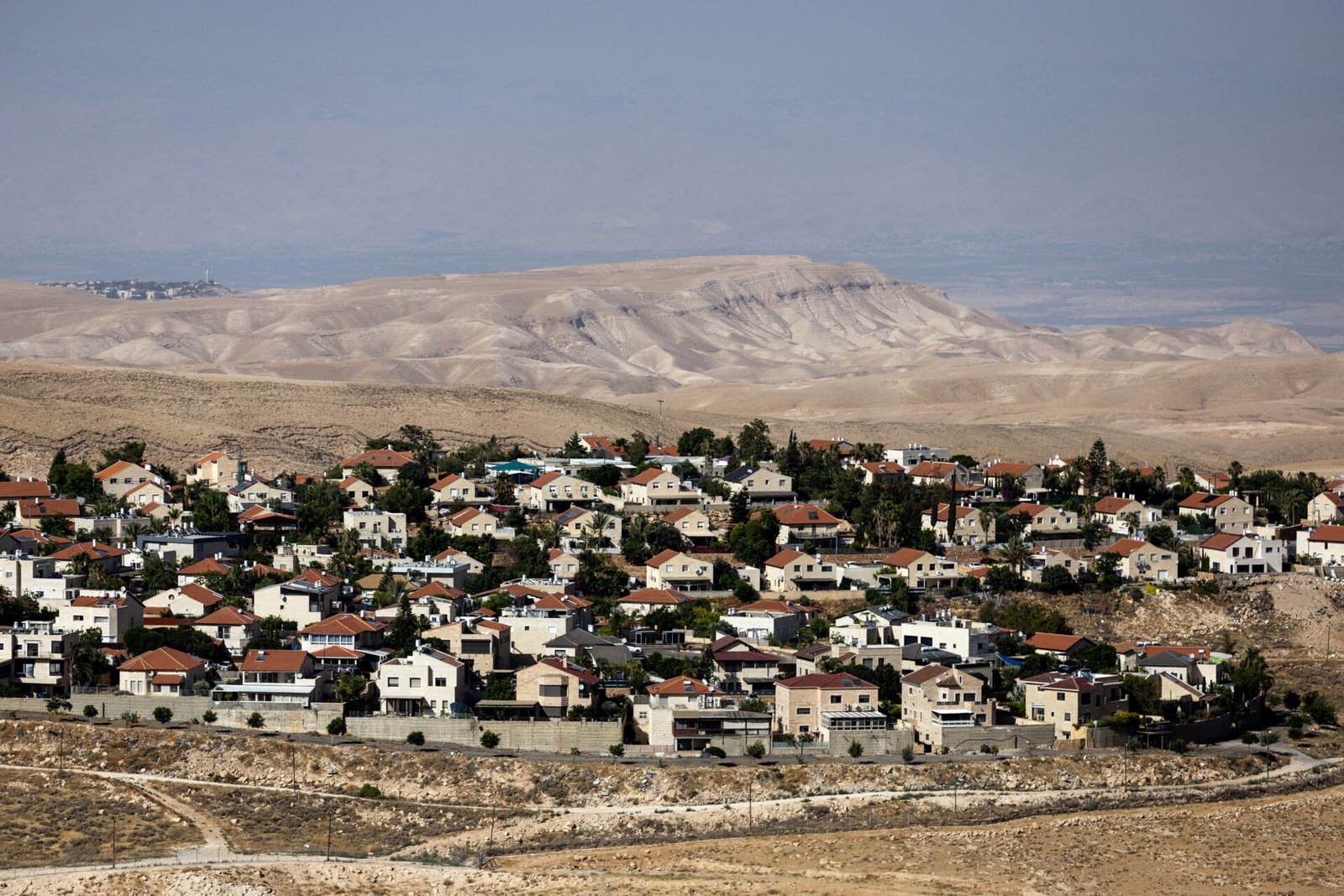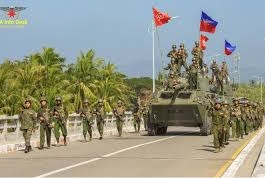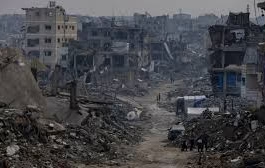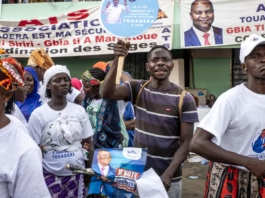
Overview of the Security Council Session
The recent session of the United Nations Security Council (UNSC) dedicated to the West Bank issues spotlighted a series of pressing concerns raised by various member states regarding the ongoing situation in the region. High on the agenda was the transformation of the West Bank, which has been significantly impacted by the expansion of illegal settlements. Throughout the discussion, representatives underscored the ramifications of such settlements on the prospect for peace in the area, emphasizing their incompatibility with international law and previous resolutions.
During the session, multiple speakers articulated their apprehensions about the escalating violence and tension that have become commonplace as a direct result of the continued occupation and settlement activities. The speakers referenced Resolution 2334 (2016), which reaffirms that the establishment of settlements in the Palestinian territory, including East Jerusalem, has no legal validity and represents a major obstacle to achieving a two-state solution. The emphasis on this resolution served as a pivotal aspect of the discussions, highlighting the international community’s commitment to address the ongoing violations of Palestinian rights and the need for a viable path forward.
Concerns Raised by UN Officials
Sigrid Kaag, the United Nations Special Coordinator for the Middle East Peace Process, has expressed urgent concerns regarding the evolving socio-political landscape in the occupied West Bank, particularly highlighting the situation in East Jerusalem. Her remarks emphasize the potential implications of the current trajectory of settlement construction and the accompanying demographic shifts that may threaten the viability of a future Palestinian state. Kaag has drawn attention to alarming statistics that reveal a stark increase in settlement activities within the region, contributing to the already strained relations between Israeli settlers and the Palestinian population.
As reported, the expansion of settlements has reached unprecedented levels, with data indicating a significant rise in the number of housing units approved for construction in these areas. This influx is not merely a statistic; it reflects a larger narrative of displacement faced by Palestinians, as many find their homes demolished to accommodate these settlements. Such actions perpetuate a cycle of tension and hostility, heightening everyday uncertainties for Palestinian families in the vicinity.
Moreover, the deteriorating security situation further exacerbates these challenges. Kaag has voiced concern over the increasing violence directed at Palestinian civilians, especially children, during military operations. This escalation not only endangers the lives of innocents but also undermines efforts for peace and reconciliation in the region. The rising incidents of violence serve to destabilize the fragile coexistence that remains a topic of discussion among peace advocates.
In light of these developments, it becomes imperative for the international community to heed the warnings posed by officials like Kaag. A proactive response is essential to address these concerns and foster an environment conducive to dialogue, coexistence, and ultimately, peace. The situation remains precarious, underscoring the need for urgent attention and action.
International Responses and Calls to Action
The ongoing conflict regarding the West Bank settlements has attracted diverse reactions from the international community. Delegates from various countries have expressed their perspectives, highlighting the urgent need for a unified response to address the situation. The representative from Palestine underscored the detrimental impact of ongoing displacements and settlement expansions, emphasizing that these actions undermine the prospects for peace and stability in the region. The Palestinian delegate advocated for immediate international intervention to halt these practices, calling for the protection of civilians and adherence to international law.
In a similar vein, the representative of Pakistan articulated concerns over the human rights violations occurring as a result of the occupation and expansion of settlements. Pakistan’s stance aligns with numerous nations advocating for an end to what they describe as hostile actions against the Palestinian population. The representative emphasized the necessity for the United Nations to play a more proactive role in ceasing these developments, urging member states to hold accountable those who violate the rights of Palestinians.
Countries like Somalia and China also echoed these sentiments, calling attention to the importance of international collaboration to facilitate a peaceful resolution. Somalia’s representative noted that a collective approach is essential to address not only the recent escalations in violence but also the root causes of the conflict. Meanwhile, China stressed the significance of the upcoming international conference dedicated to the peaceful settlement of the Palestinian issue, asserting that it presents a crucial opportunity for dialogue among all parties involved.
Consequently, the calls for an accountable and united international stance are growing louder, with many delegates urging the UN Security Council to take decisive action against the continued occupation and settlement activities. The consensus among these nations emphasizes a critical need for all involved to engage constructively in seeking a lasting solution that respects the rights of the Palestinian people while fostering peace and stability in the region.
Implications for Palestinian Statehood
The ongoing discourse surrounding West Bank settlements has increasingly raised concerns about the implications for Palestinian statehood. Delegates at the UN Security Council have underscored the pressing nature of these discussions, as the unchecked expansion of settlements is perceived as a direct threat to the viability of a future Palestinian state. This perspective is rooted in a broader understanding that continuous settlement growth not only diminishes the territorial contiguity essential for a sustainable Palestinian state but also exacerbates tensions between different communities in the region.
Various representatives have voiced alarm over the erosion of land that is fundamental to the establishment of a robust and independent Palestinian state. The narrative emerging from these discussions reveals a consensus on the urgent need for renewed political negotiations, aimed specifically at addressing the settlements issue. The repeated calls for adherence to UN Security Council resolution 2334 (2016), which condemns the expansion of settlements, further highlight the international community’s acknowledgment of the need to halt actions undermining the two-state solution.
Moreover, there is a growing recognition among delegates that the preservation of viable Palestinian territory is not solely the responsibility of one party but requires collective effort and responsibility from all stakeholders. This perspective advocates for a multifaceted approach that encourages dialogue and collaboration towards establishing peace. Encumbered by settlement expansions, any path to a negotiated settlement remains precarious at best, emphasizing the necessity for international involvement in fostering an environment conducive to peace-building.
Ultimately, the implications of these settlements extend beyond mere territorial disputes; they touch upon the very essence of Palestinian identity and sovereignty. Stakeholders within the UN Security Council continue to advocate for a concerted response to the challenges at hand, affirming the need to prioritize the Palestinian cause in the pursuit of a lasting resolution.



